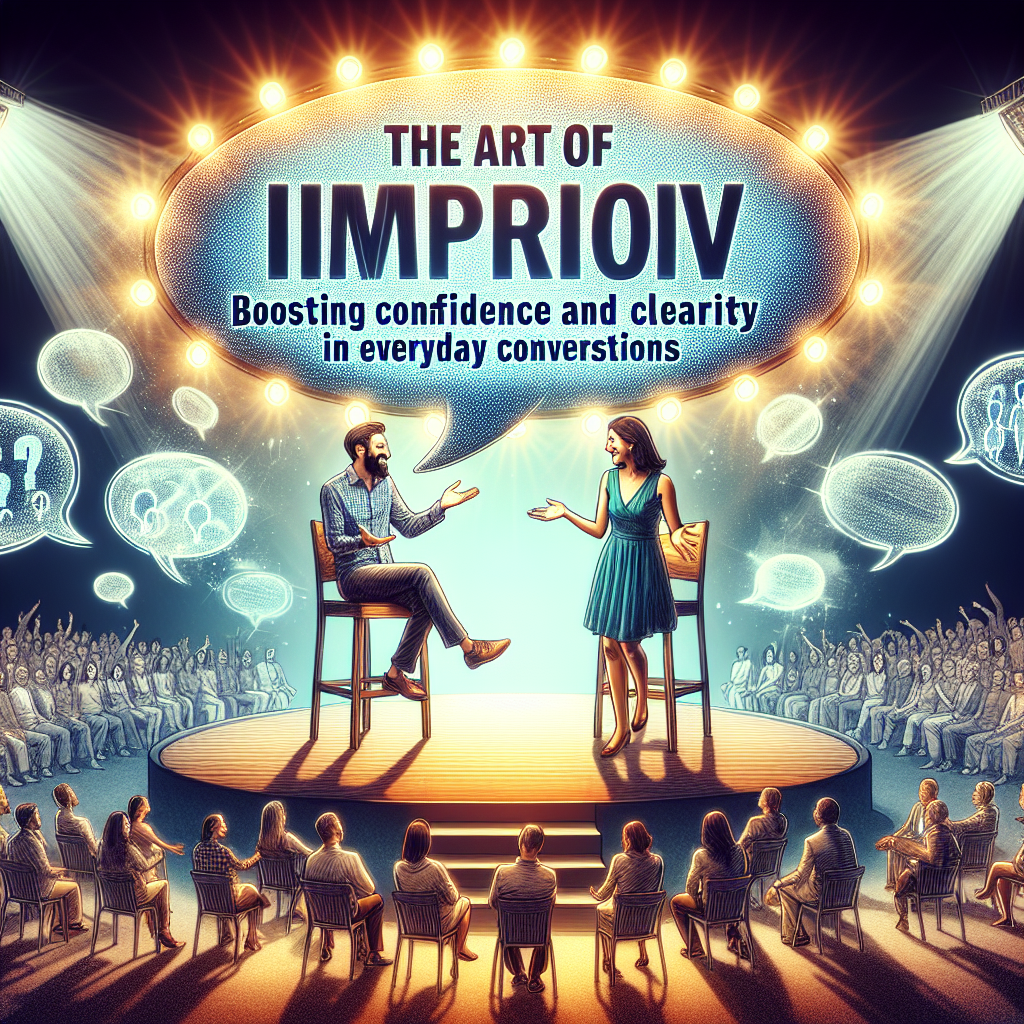The Art of Improv: Boosting Confidence and Clarity in Everyday Conversations
In a world where communication is king, the ability to think on your feet has become more vital than ever. From professional environments to social gatherings, the art of improvisation—or improv—proves to be an invaluable skill for navigating the complexities of everyday conversations. While often associated with comedy and theatrical performances, improv techniques have quietly evolved into powerful tools for boosting confidence and enhancing clarity in communication.
The Essence of Improv
At its core, improv is the practice of creating dialogue and action spontaneously, without a script. It embraces the idea of living in the moment, encouraging participants to be present and actively listen, rather than premeditate their next move. This principle alone can be transformative when applied to daily interactions, where the unpredictability of human conversation often necessitates a spontaneous yet thoughtful response.
Building Confidence Through Acceptance
One of the foundational tenets of improv is the concept of "yes, and." This rule encourages participants to accept and build on whatever their scene partners bring to the table, fostering an environment where ideas are supported rather than shot down. In everyday conversations, adopting a "yes, and" mindset cultivates openness and receptivity, allowing individuals to engage more confidently with others’ perspectives and contribute constructively. This willingness to accept ideas without immediate judgment can reduce anxiety and build a more resilient conversational style.
Enhancing Clarity with Active Listening
Improvisation requires keen attention to what others say and do, necessitating a level of active listening that enhances clarity in communication. In everyday interactions, honing this skill allows individuals to fully engage with their conversational partners, resulting in more meaningful exchanges. By genuinely focusing on the speaker, individuals can better understand the nuances of the conversation, leading to more informed responses and mitigating misunderstandings.
Adaptability in the Face of Uncertainty
Life, much like improv, is inherently unpredictable. The ability to adapt to unforeseen circumstances is crucial, and improv arms individuals with the creative agility needed to navigate these challenges. Practicing improv trains the brain to remain flexible, encouraging quick problem-solving and innovative thinking—skills that are particularly useful in resolving conflicts or addressing unexpected questions during conversations.
Building Empathy and Connection
Improv encourages participants to place themselves in others’ shoes, fostering empathy and understanding. By engaging in exercises that require one to react and respond to others’ emotions and actions authentically, individuals can develop a deeper sense of connection and empathy. In everyday conversations, this translates into more compassionate and supportive interactions, building stronger relationships both personally and professionally.
Practical Applications Beyond the Stage
The principles of improv extend far beyond the confines of a stage performance. Business leaders leverage improv to enhance leadership skills and team dynamics, educators use it to foster engagement in the classroom, and therapists incorporate it into practices to improve emotional awareness and resilience. In personal lives, individuals who embrace improv techniques find themselves more capable of handling social interactions, networking opportunities, and even public speaking with renewed confidence and effectiveness.
In conclusion, the art of improv holds transformative potential for everyday conversations. By adopting its principles of acceptance, active listening, adaptability, and empathy, individuals can navigate the intricacies of human communication with greater confidence and clarity. Whether you’re looking to enhance your social skills, improve professional interactions, or simply become a more adept communicator, improv offers a rich toolkit for personal growth and successful engagement in an ever-changing conversational landscape.
